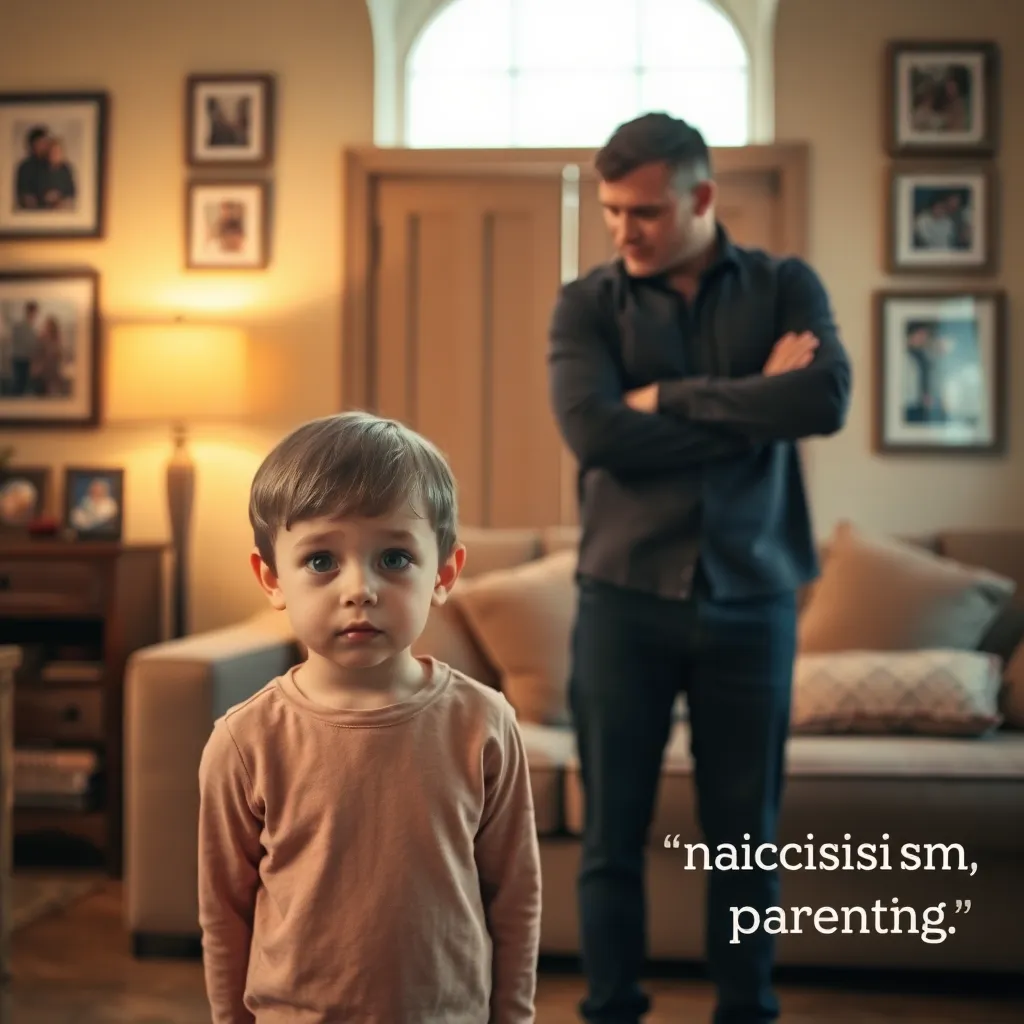Navigating the stormy seas of family dynamics can be a daunting challenge, especially when narcissism and parental alienation are involved. These complex issues often leave families feeling lost and overwhelmed, as they grapple with the emotional fallout and seek to understand the underlying causes. It’s crucial to recognize that you are not alone in this struggle, and that understanding these dynamics can be the first step towards healing and resolution.
The impact of narcissism in a parental figure can be particularly devastating, as it often leads to a cycle of manipulation and emotional turmoil. Parental alienation, on the other hand, can create a painful divide between a child and a parent, leaving lasting scars on all involved. This article aims to shed light on these issues, offering insights and strategies to help you navigate these difficult waters with empathy and resilience.
In this piece, we will delve into the characteristics of narcissistic behavior and how it can manifest within family relationships. You’ll also gain a deeper understanding of parental alienation, exploring its signs, effects, and the emotional toll it can take. Our goal is to equip you with practical advice and provide a supportive framework to help you address these challenges with confidence and compassion.
1. Defining Narcissism in Parenting

Understanding **narcissism in parenting** begins with recognizing how it manifests in family dynamics. Parents with narcissistic traits often prioritize their own needs over those of their children, creating a challenging emotional environment.
In many cases, a **narcissistic parent** may seek constant admiration, often at the expense of their child’s self-esteem. This behavior can lead to a cycle where the child learns to suppress their own emotions and desires to avoid conflict.
Parents with these traits may also use their children to bolster their own self-image. For example, a parent might insist their child excels in activities not out of support, but to reflect positively on themselves.
Such dynamics can be especially damaging as children grow, leading them to struggle with **self-worth and autonomy**. It is crucial for anyone witnessing these signs to approach the situation with empathy and understanding.
Recognizing these patterns is the first step toward healing and fostering a healthier family environment. By addressing these issues, families can work towards more balanced and nurturing relationships.
2. Recognizing Parental Alienation Tactics

Recognizing parental alienation tactics can be challenging, especially when they are subtle yet persistent. One common tactic is when a parent consistently portrays the other parent in a negative light, often using phrases that undermine the child’s trust and affection for them.
Additionally, a narcissistic parent might manipulate circumstances to create conflict, ensuring the child sees the other parent as the source of distress. This behavior often includes planning events or important moments without the other parent’s input, then blaming them for being absent or uninvolved.
In some cases, the alienating parent might use guilt or shame as a tool, making the child feel responsible for the parent’s emotional well-being. Such tactics can deeply impact a child’s self-esteem and perception of familial relationships, leading to long-term emotional challenges.
According to experts, reinforcing positive communication and maintaining consistency in your actions can help counteract these negative influences. By focusing on building a strong, supportive bond with your child, you can mitigate the impact of alienation tactics.
3. Impact of Narcissism on Children

When a parent exhibits narcissistic traits, the children often find themselves caught in a whirlwind of emotional turmoil. These children may struggle with a distorted sense of reality as they are manipulated to view the other parent through the narcissistic parent’s skewed lens.
Imagine a child constantly hearing that one parent is the source of all family problems. Over time, this narrative can severely damage the child’s self-esteem and their perception of healthy relationships, as they may internalize the blame or confusion.
In real-world scenarios, children of narcissistic parents might display behaviors such as extreme loyalty to one parent while unjustly resenting the other. This dynamic can lead to a lifetime of trust issues and difficulties in forming authentic bonds with others.
Experts suggest that these children benefit from a consistent, nurturing environment that emphasizes the importance of critical thinking and open communication. Parents who suspect their children are affected should focus on establishing a safe space where feelings can be expressed freely and without judgment.
Ultimately, understanding and addressing the impact of narcissism on children is crucial for their development into healthy, well-rounded adults. By prioritizing their emotional well-being and providing unwavering support, we can help them navigate these complex dynamics.
4. Strategies to Combat Alienation

When dealing with narcissistic influences, it’s crucial to establish a consistent and supportive environment for the child. Providing a stable and nurturing space helps counteract any negative narratives they may encounter from the other parent.
Consider involving a professional, such as a family therapist, who can offer an unbiased perspective and facilitate healthier communication. Therapy can also equip children with tools to process their emotions and build resilience against manipulation.
Engaging in open and honest conversations with your child is essential. Encourage them to express their feelings and reassure them that their thoughts are valid and valued.
In many cases, maintaining a civil relationship with the narcissistic parent, if possible, can ease tensions. Demonstrating respectful interactions can model positive behavior for the child, showing them how to handle difficult situations gracefully.
Ultimately, the key is to remain patient and persistent, reinforcing the child’s sense of self-worth and belonging. Over time, with love and support, children can thrive despite the challenges posed by parental alienation.
5. Rebuilding Trust in Families

Rebuilding trust in a family torn apart by narcissistic behavior and parental alienation requires a gentle yet determined approach. Often, the first step is acknowledging the pain and confusion that has been experienced by everyone involved.
In a real-world scenario, consider a father who has been alienated from his children for years. By consistently showing up and demonstrating reliability, he gradually rebuilds a connection, showing his children that they can trust him again.
Therapists often suggest engaging in open and honest communication as a cornerstone of rebuilding trust. Creating a safe space for family members to express their feelings can help unravel misunderstandings and foster healing.
Re-establishing trust takes time and patience, but it is a journey worth taking. When family members are willing to put in the effort, they can create a more harmonious and loving environment, slowly eroding the barriers that once divided them.
Conclusion: Creating Beautiful Outdoor Spaces
In navigating the intricate dynamics of narcissism and parental alienation, we explored five pivotal concepts: recognizing narcissistic traits, understanding the emotional impact on children, setting healthy boundaries, fostering open communication, and embracing professional support. By acknowledging these elements, you empower yourself to create a nurturing environment that prioritizes the well-being of all family members.
As an immediate next step, consider starting a conversation with someone you trust about your insights from this article. Sharing your thoughts not only reinforces your understanding but also opens doors to support and collaboration.
To stay equipped with these essential tools, bookmark this article as a resource you can return to whenever you need guidance. Remember, the journey to healthy relationships is ongoing, and having a reliable reference can make all the difference.
Looking ahead, envision a future where your relationships are characterized by empathy, respect, and resilience. By taking action today, you’re laying the foundation for a harmonious and connected tomorrow. You’ve got this—your proactive steps can lead to profound and positive changes.
